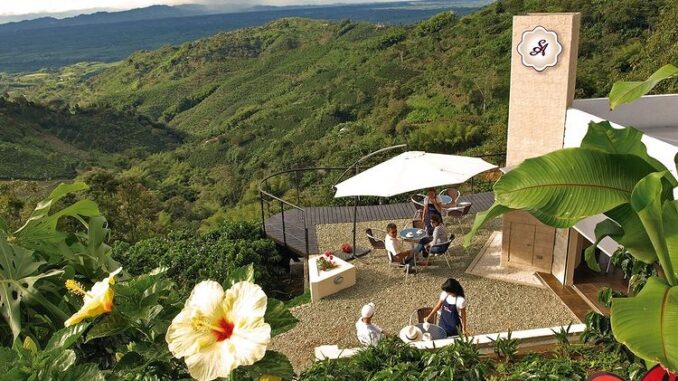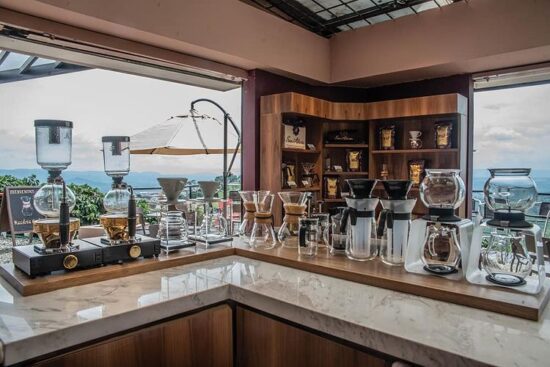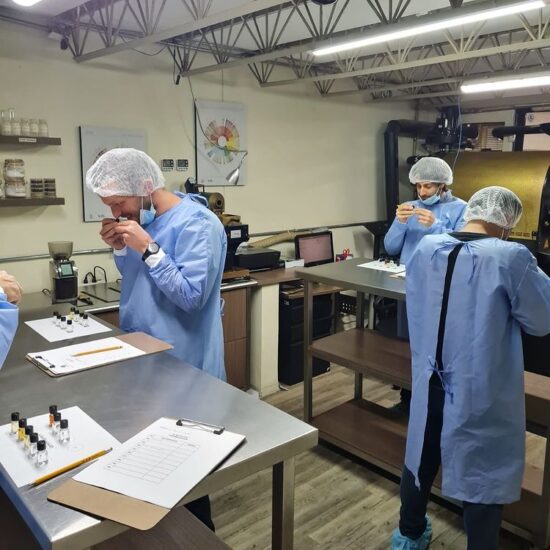
We get to know some of the players who make Colombian specialty coffee possible.
BY YKER VALERIO
SPECIAL TO BARISTA MAGAZINE ONLINE
Cover photo courtesy of Café San Alberto
From the editor: Yesterday we explored specialty coffee in Colombia, and how the country began to embrace it as a beverage in addition to a high-quality growing practice. Today we observe two more important players in the boom of Colombian specialty coffee: baristas and coffee shops.
The Professional Barista
The barista career in Colombia has changed significantly since Luis Fernando Vélez, Amor Perfecto founder and CEO, represented the country at the World Barista Championship in Boston in 2003. To some extent, that’s even a vast understatement, considering Diego Campos’ triumph in Milan as the first Colombian World Barista Champion.
Coffee events in Colombia were growing steadily every year until the pandemic hit. The Colombian Coffee Growers Federation organized or sponsored most of these events, working tirelessly to strengthen the entire coffee value chain.
”The Federation work has been outstanding from end to end across the value chain. Starting with research and development work and knowledge sharing, always looking for economic sustainability for coffee producers. And just as importantly, promoting Colombian coffee at home and abroad,” says Jaime Duque, general manager and founding partner of Catación Pública.
The barista career has been institutionalized thanks to Juan Valdez coffee shops, the storefront of the Federation. Currently, Juan Valdez has 445 coffee shops, 313 of which are in Colombia, with 132 locations across 13 countries. At Juan Valdez coffee shops, it’s possible to find roasted coffee beans from the Federation members, showcasing coffees from different regions and blends.
Colombian barista champion Mauricio Romero remembers his early years at Juan Valdez, and he asserts that working in coffee changed his life. ”When we started working in specialty coffee about 15 years ago, we were driven by passion. Now, the barista role is a professional option for many young people that are passionate as well, but see in coffee a profitable and promising career,” says Mauricio. Mauricio is now the co-founder of the coffee shop El Industrial.
The Colombian education system has contributed by adding formal free vocational training offerings at the National Learning Service (SENA). Furthermore, according to Gustavo Villota, director and founder of Colombian roaster and producer Café San Alberto, the combined effort of the SENA technical training options, private academies, and premium coffee shops have built a solid foundation for a massive improvement in service quality.

The Colombian Coffee Shop: An Emerging Social Hub
As the high-quality coffee industry started to address the local market, a new space emerged: the specialty-coffee shop. People used to gather for coffee at home with friends or at bars. According to Mauricio, the coffee shop has since become a place for social meetings, which is something new for Colombians.
Still, the Colombian coffee shop concept differs from more popular establishments and affordable coffee options from street vendors, kiosks, and cigarrerias. In this context, offering a pricier coffee is challenging.
Mauricio believes economic sustainability is hard to accomplish based only on specialty coffee and pastries. ”We needed to offer a wider selection of coffees because most people don’t like acidic and fruity coffee. As soon as I started offering more developed roasts, people praised them and came more frequently. We still offer medium and light roasts for more exotic varieties, but we have regular clients with different preferences. Acknowledging that and offering a complete meal menu has helped us improve our profitability.”

Roasting at the Origin: The Future of Colombian Coffee Exports
Diego Campos said earlier this year to Barista Magazine that one of his goals as the World Barista Champion is to ”tell the world that roasting at origin makes sense.”
Several Colombian coffee exporters agree with Diego. Gustavo, for instance, believes it’s essential to build global coffee brands at the origin. ”The future of high-end coffee will be led by brands roasted at origin,” says Gustavo.
The Federation worked for decades to build a solid reputation for Colombian coffee; are we ready for the new generation of high-quality Colombian coffee?
ABOUT THE AUTHOR
Yker Valerio (he/him) is a freelance content creator. After more than 10 years of working as a management consultant, he started the blog Bon Vivant Caffè to share his passion for specialty coffee.

